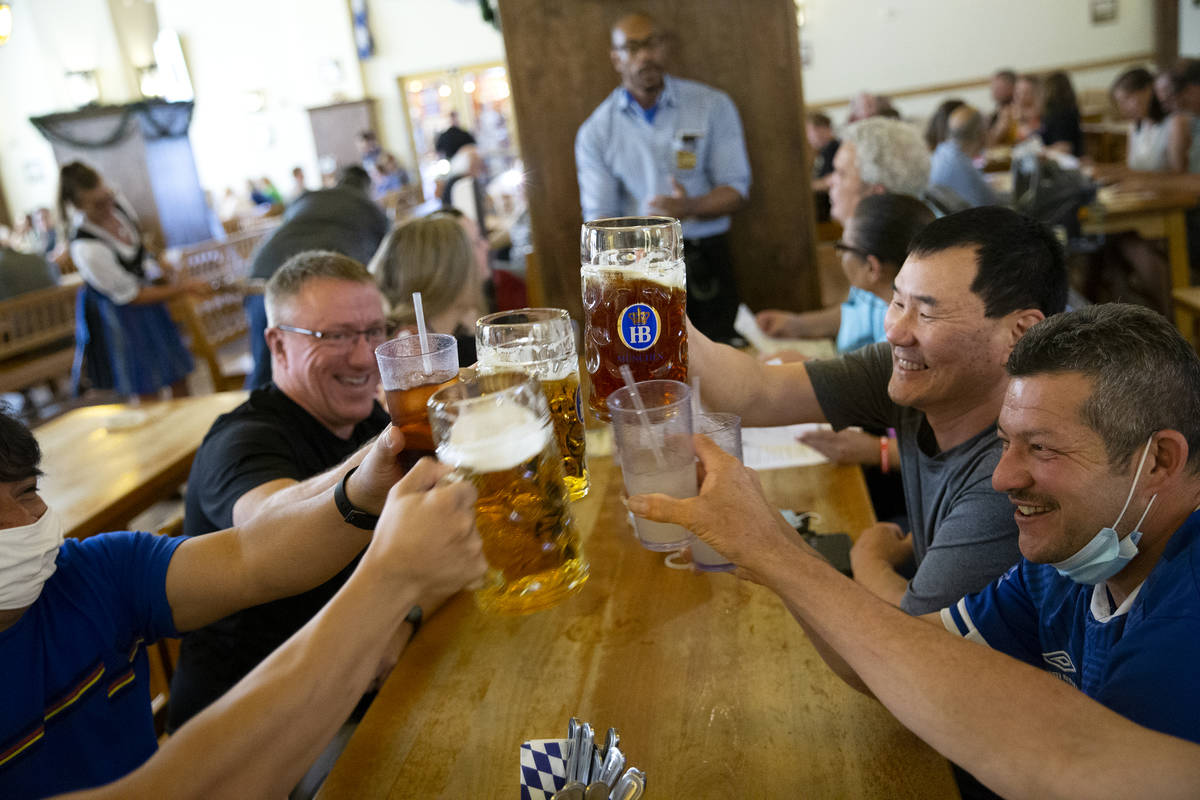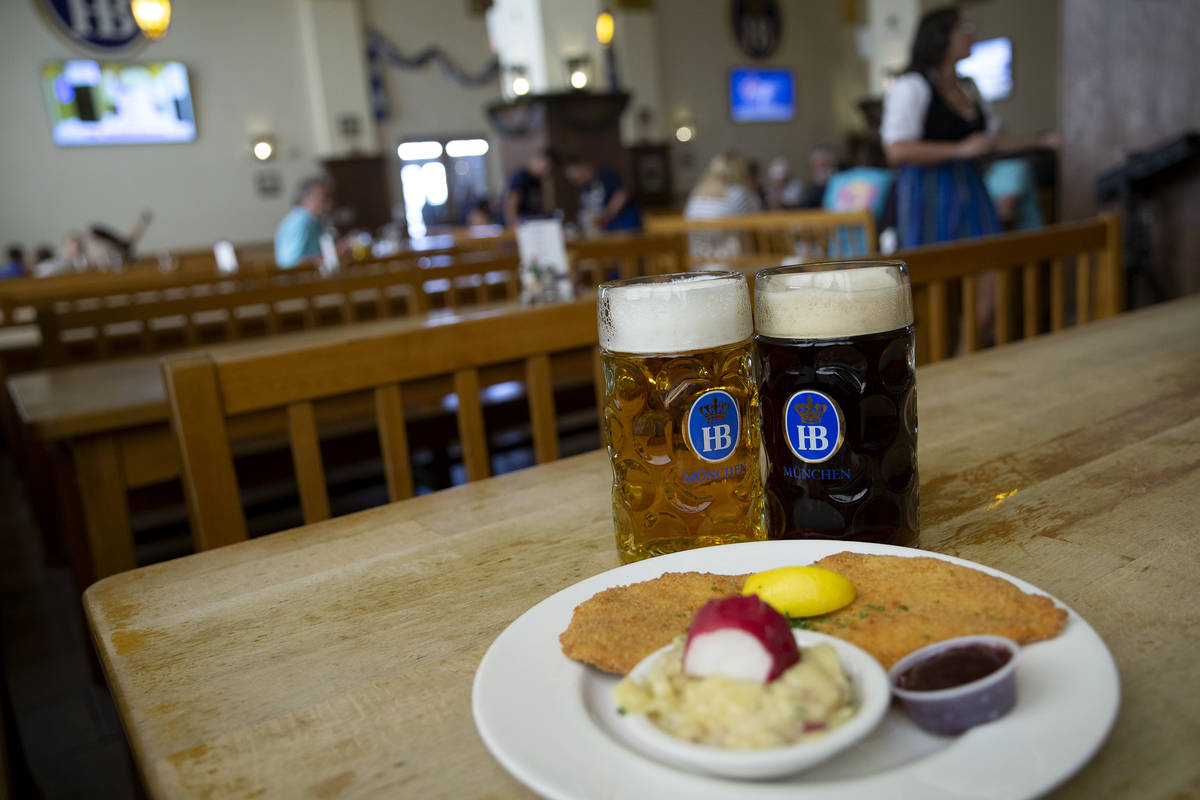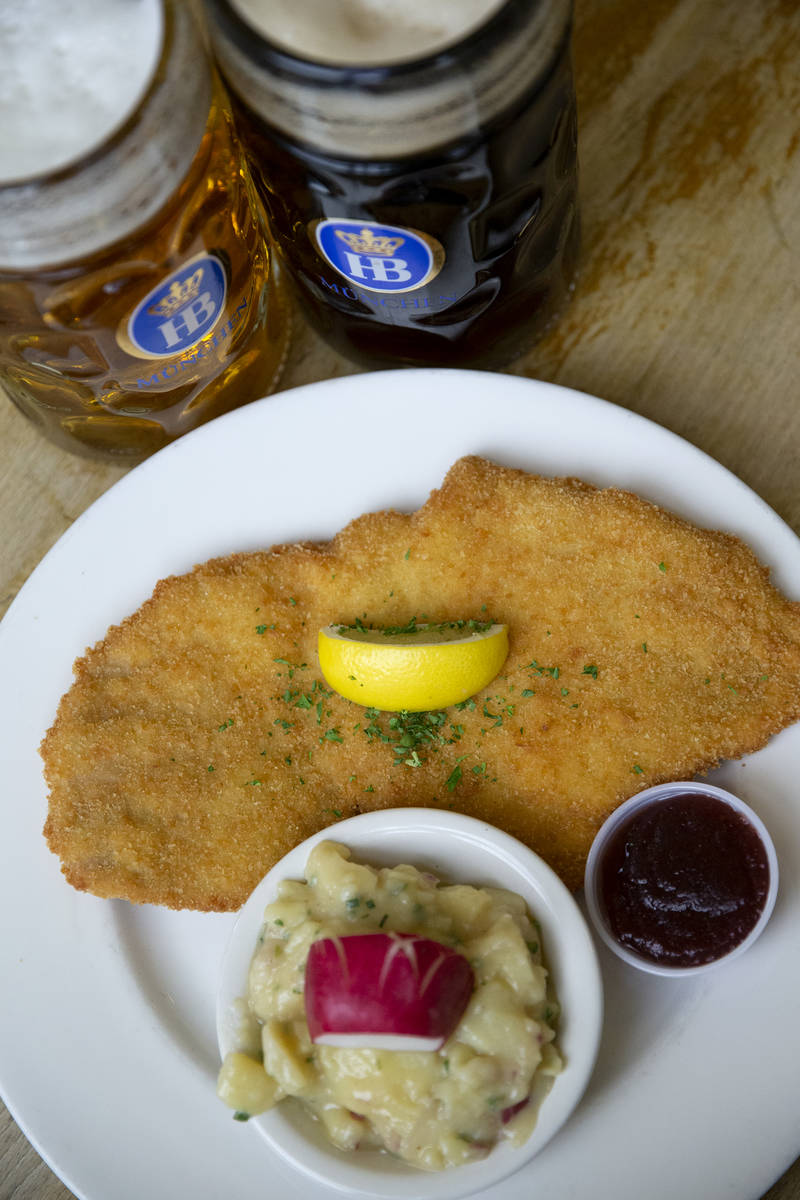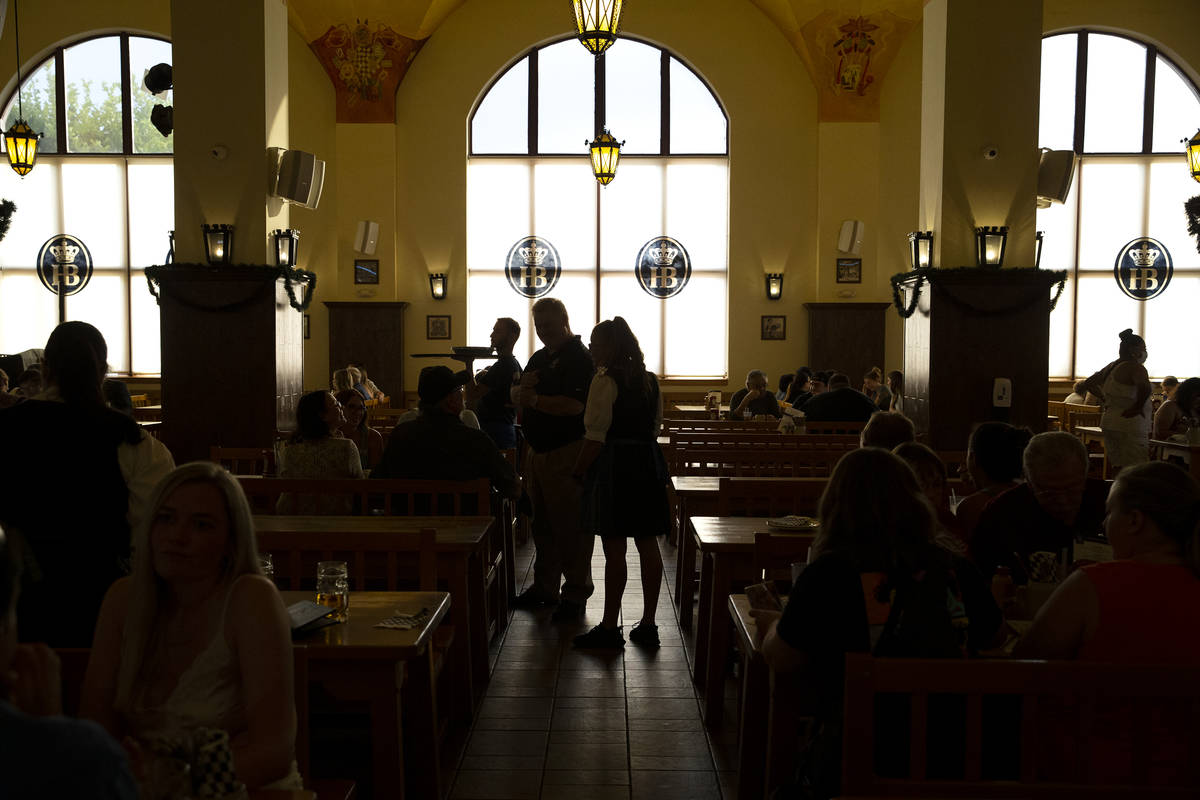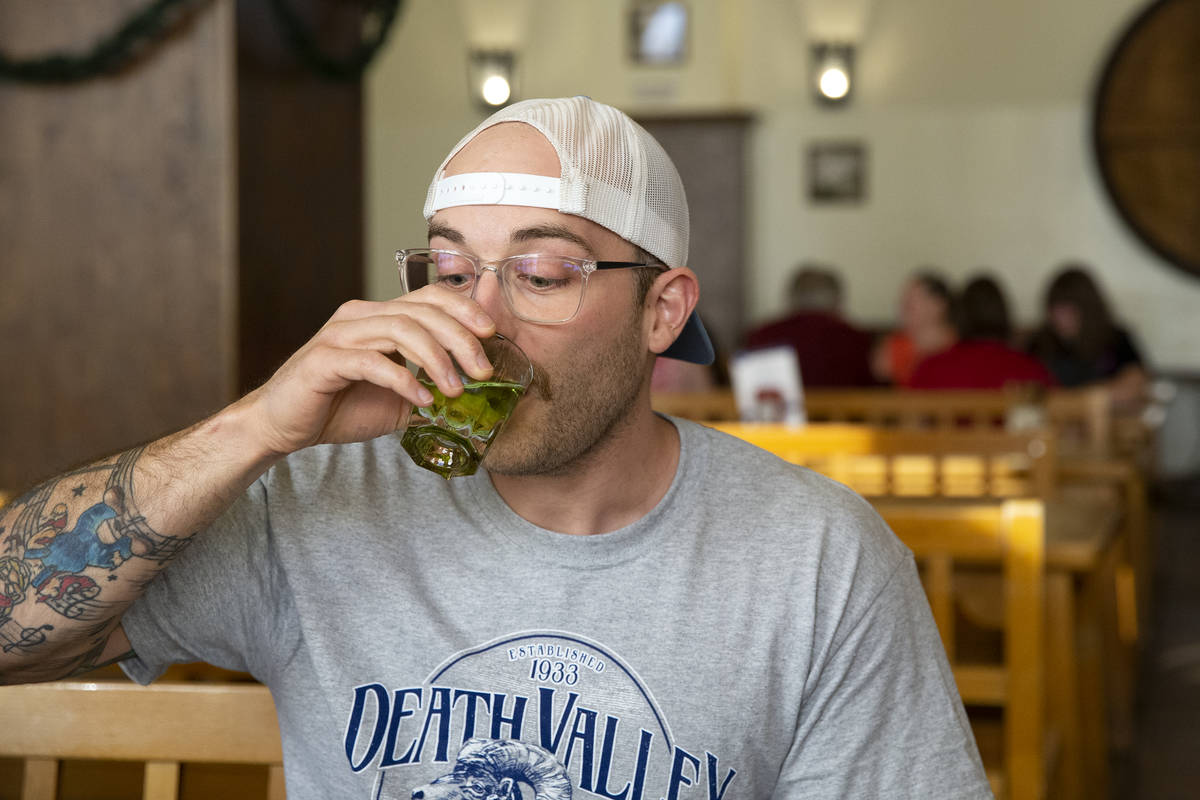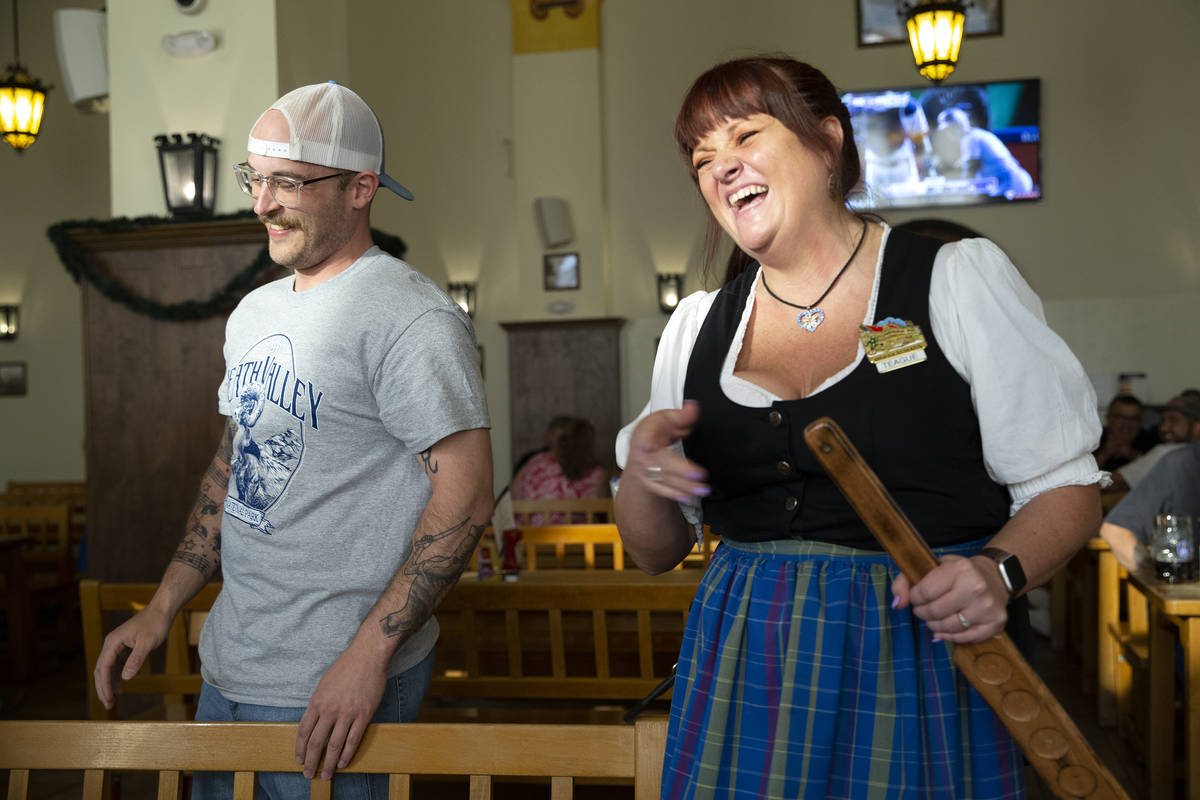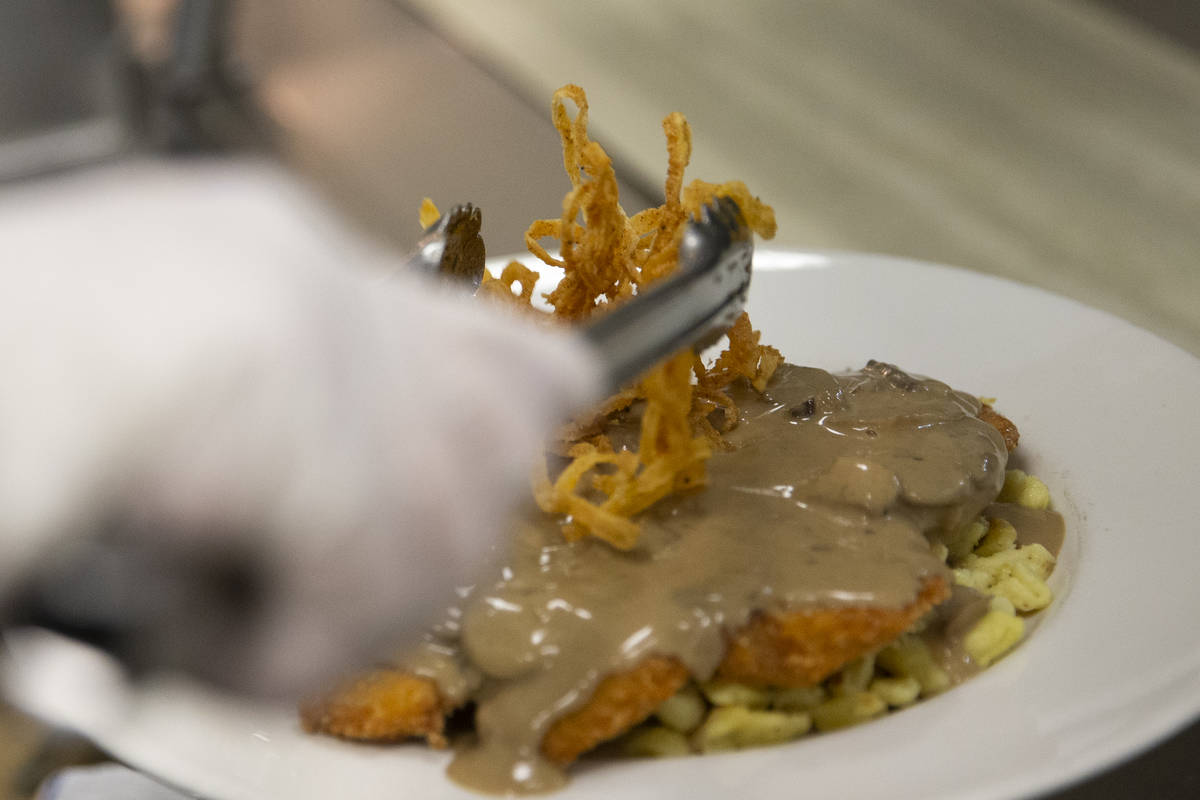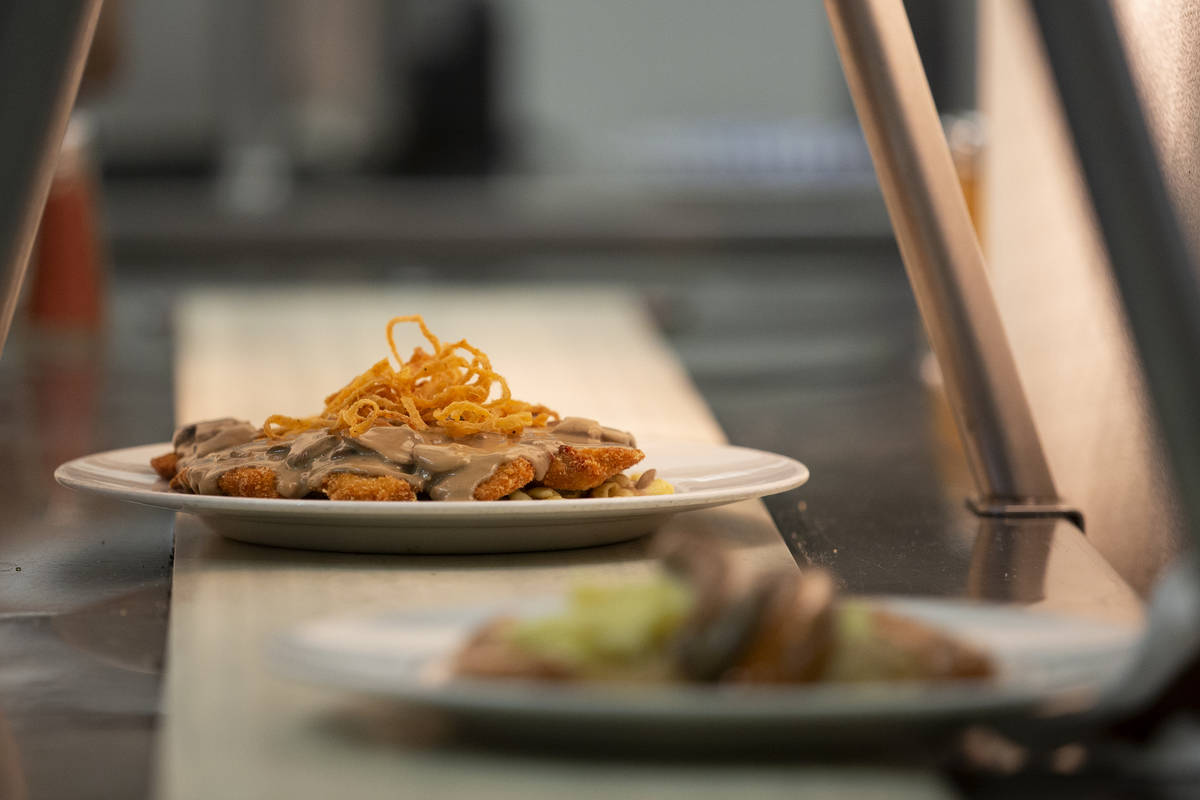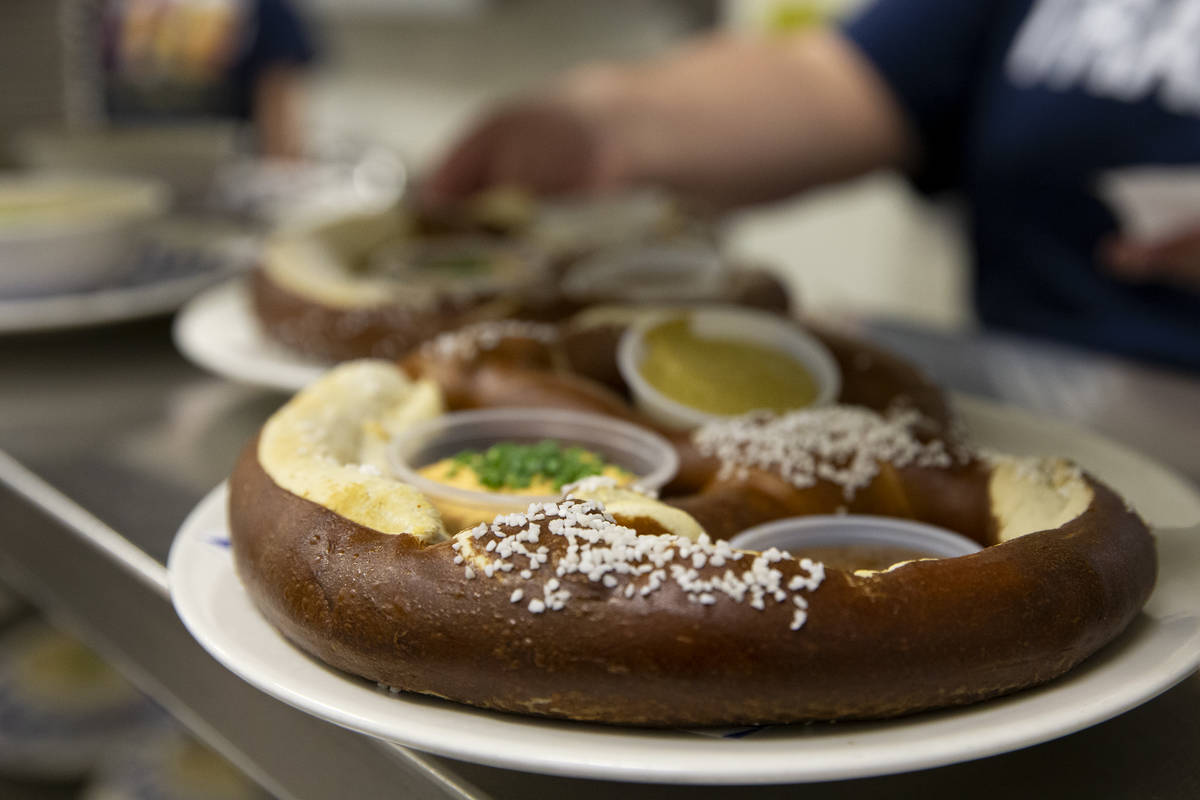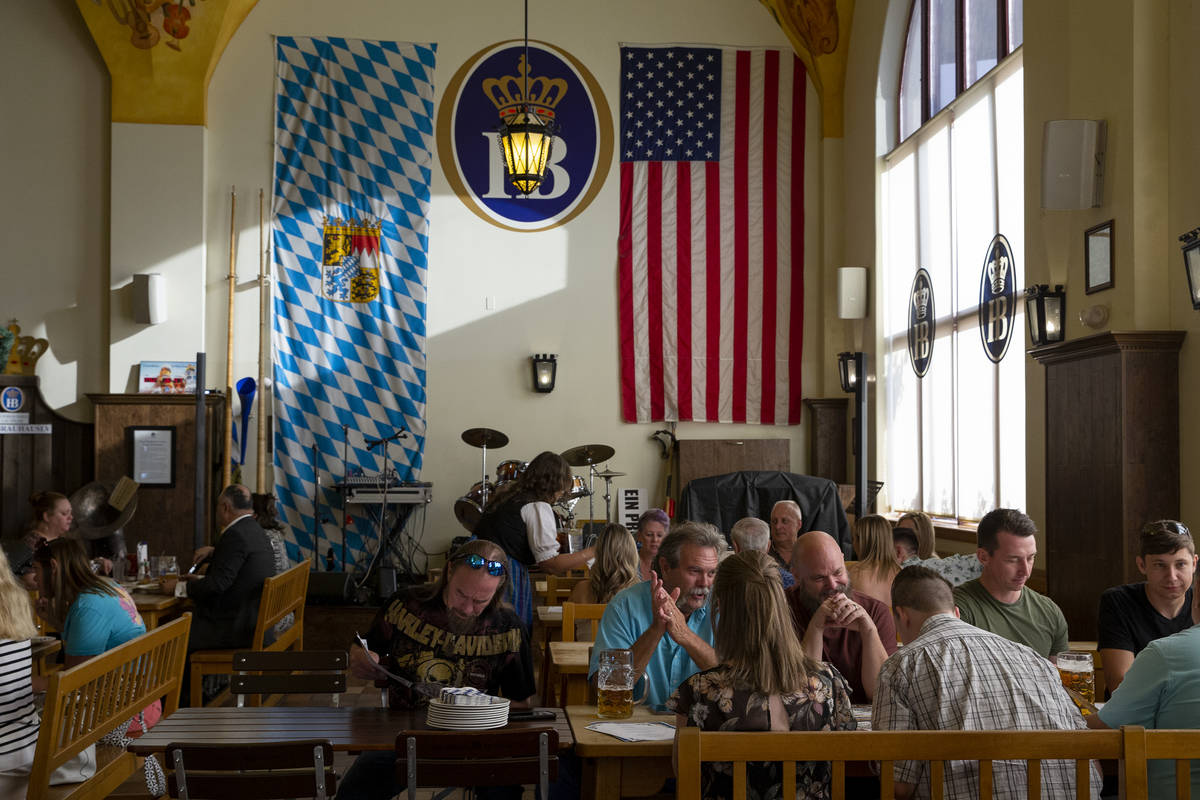Hofbrauhaus faced unique set of challenges from the pandemic
Las Vegas’ own model of Munich’s famed Hofbrauhaus hadn’t been closed a single day in its 17-year history.
Until, that is, March 17, 2020, when it was shuttered as part of the statewide shutdown. And so the famed beer hall would remain, for 15 long months, darkened and quiet on its corner of Paradise Road until June 1.
“It was extremely devastating, especially for our employees,” Vice President Klaus Gastager said. Like most everybody else, Gastager figured they would be closed two, three months at the most, and not for an extended period.
“I’m not a gambler,” he said, “but I wouldn’t have put money on it.”
But before they could reopen, Hofbrauhaus representatives were met with challenges that didn’t affect most restaurants. Its beer isn’t brewed on-site, as many assume. It’s shipped from Munich, and Germany had its own COVID-related problems.
“The brewery shut down,” Gastager said. “And the shipping situation around the world is insane.”
Before the pandemic, beer could be shipped from Germany in about six weeks, sometimes a little more quickly. It came into Los Angeles and was trucked to Las Vegas. But even after the brewery reopened, there was a shortage of shipping containers. And, of course, greater demand and shorter supply meant prices went up. Gastager said now he has to pay $1,500 just to reserve a shipping container, and prices have tripled, now running $9,000 to $11,000 to ship one.
“And there’s a shortage of truckers,” Gastager said. “So the trucking costs doubled.”
So that six-week window turned into three months.
“When we finally made the decision to reopen, we had to scramble to make arrangements to get the beer over,” he said. “And apple strudel, sauerkraut, pretzels — it all had to be coordinated. It wasn’t just the increased costs, but the uncertainties.
“It was obviously nerve-wracking. You hire new people, and then you don’t have the beer,” which represents 25 percent of revenue.
And now we come to the staffing shortage that’s plaguing nearly all local restaurants. While his kitchen staff is largely intact, Gastager said, he has had problems getting enough servers. In mid-June, he was running with 10 servers when he normally has 30, although he had 19 servers as of Friday.
“You can imagine how hard those people have to work,” he said. “We’re afraid of burning them out right now.” To compensate, he had to go to shorter hours.
And maybe somewhat ironically, the Hofbrauhaus has more customers than in any summer in the past.
“A lot of people expect this summer will be busier than usual,” he said. “The bad sign is we don’t have enough staff, so we have to limit our reservations. Desperately, like everybody else, we are looking for good people.”
Border shutdowns also meant the Hofbrauhaus couldn’t bring entertainers from Germany and Austria, as they usually do, so they had to find local entertainers to fill in. The first German band will arrive Sept. 1.
“Guests think it’s business as usual,” he said. “We try to make it business as usual, because people had enough hardships over the past 15 months.”
Gastager doesn’t yet see a light at the end of the tunnel, although he remains hopeful.
“More people are getting back to work,” he said. “I hope by the end of the year, we’ll be in a better position. Because of the summer being so busy now, that’s obviously a big problem.”
Contact Heidi Knapp Rinella at Hrinella@reviewjournal.com. Follow @HKRinella on Twitter.



